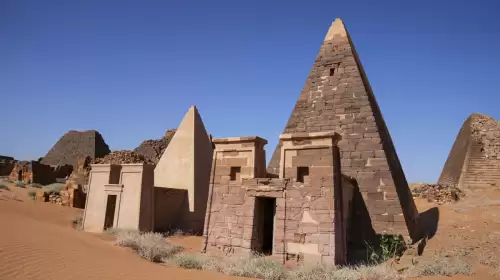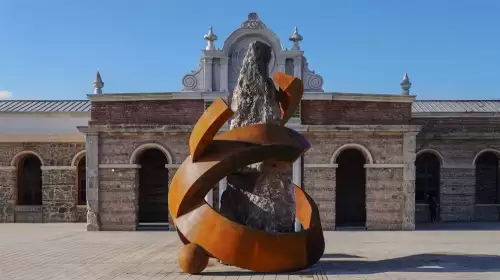Colonialism did not end; it merely transformed.
TRT Arabi's documentary "In the Name of Justice" brings this truth to the forefront through the lens of the Palestinian struggle, delving into the multifaceted debates surrounding justice in today's world.
Anchored in South Africa's efforts to bring Israel before the International Court of Justice (ICJ), the documentary explores the global role of justice, presenting the Palestinian issue through historical, legal and humanitarian dimensions with remarkable clarity.
The documentary embarks on a journey through South Africa's history, beginning in 1948, the year apartheid policies took root.
These policies, which oppressed Black South Africans through systemic discrimination, are juxtaposed with the systematic oppression observed in Palestinian territories today.
The inclusion of Nelson Mandela's powerful words, "South Africa's freedom is incomplete without the freedom of Palestine," deepens the emotional and intellectual impact of the narrative.
By drawing parallels between apartheid-era practices—such as identity controls, restrictions on movement and spatial segregation—and contemporary policies in Palestine, the documentary makes a compelling call for universal justice.
As Michael Lynk, former Special Rapporteur on the situation of human rights in Palestine, said, it sheds light on Israel’s granting of legal rights to 750,000 settlers while simultaneously denying millions of Palestinians their fundamental rights, highlighting the stark inequities that provoke global outrage.
South Africa’s Pursuit of Justice At the heart of the documentary lies South Africa's legal pursuit of justice: its move to label Israel’s actions as "genocide" and bring these allegations to the ICJ.
This effort prompts an in-depth discussion on the applicability of the Genocide Convention and whether modern iterations of apartheid align with the current situation in Palestine.
The documentary not only examines the legal nuances but also raises critical questions about the efficacy of international mechanisms in addressing such crises.
Rather than treating the conflict as a purely political issue, the documentary emphasizes the human stories that bring the tragedy into sharp focus.
Particularly poignant are the accounts from a doctor in Gaza, who recounts the harrowing challenges of treating a 10-year-old child injured by shrapnel amidst bombings.
These scenes transform cold statistics into deeply personal narratives, urging viewers to empathize and reflect on the individual suffering behind the headlines.
The personal testimonies interwoven throughout the film reveal the devastating toll of war on daily life.
From the destruction of homes and hospitals to the resilience of those who endure unimaginable hardships, the documentary paints a vivid picture of human endurance and vulnerability.
These stories challenge audiences to move beyond passive observation and consider their role in advocating for justice.
South Africa’s initiative to lead this legal battle is portrayed as a catalyst for global solidarity, inspiring activists worldwide.
The documentary underscores the critical link between individual responsibility and collective action, offering a powerful message of hope and unity in the face of systemic injustice.
Visually, In the Name of Justice excels in storytelling.
Archival footage, courtroom scenes and intimate interviews create a multi-dimensional narrative that bridges the past and present.
These visuals not only enhance understanding but also immerse viewers in the historical and contemporary contexts of the Palestinian struggle.
A Testament to Accountability Another noteworthy aspect of the documentary is the reference to the Turkish Anadolu Agency's (AA) book "Evidence," which was instrumental in the legal processes at the ICC.
The documentary emphasizes that the "Evidence" book was also used at the ICC and the support of the book in this critical process, which is mostly unknown even to the Turkish public.
It is also worth noting that TRT's work with its investigative journalism team will be taken as a reference in future processes as evidence, just like AA.
TRT Arabi's In the Name of Justice is more than a commentary on contemporary conflicts; it is a call to action and a reminder of our collective responsibility.
By asserting that justice is not merely an ideal but a necessity, the documentary positions itself as a vital resource for both academic inquiry and humanitarian reflection.
It is a masterpiece that deserves to be seen, discussed and remembered.





